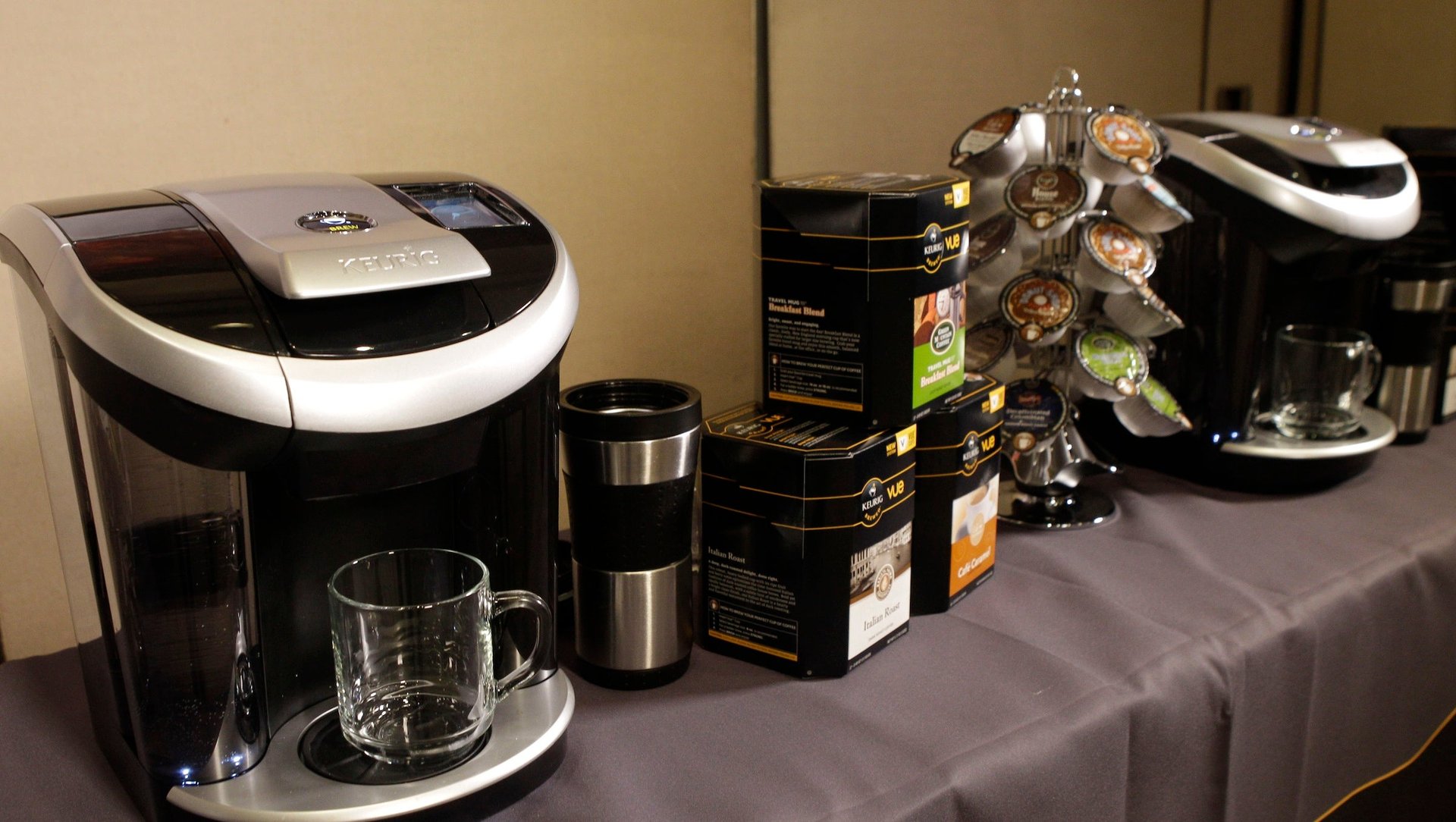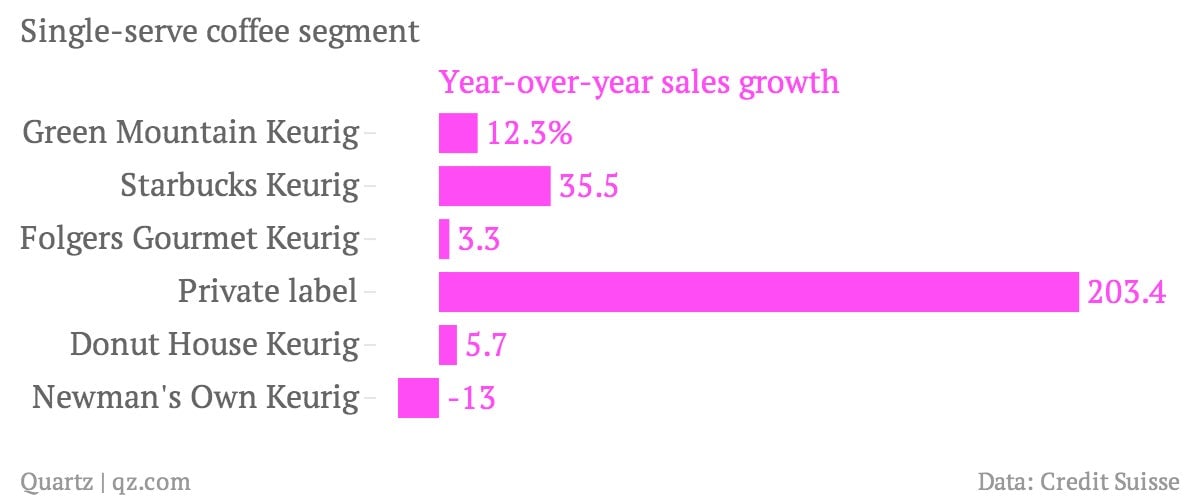The remarkable rise of reverse-engineered private-label coffee pods
The coffee roaster and single-serve coffee machine maker Keurig Green Mountain has been extremely successful over the last few years, becoming one of America’s dominant coffee brands. But it has been challenged by a rising number of K-Cup pirates—private label companies making much cheaper Keurig-compatible single-serving pods, without paying a dime to Keurig for licenses.


The coffee roaster and single-serve coffee machine maker Keurig Green Mountain has been extremely successful over the last few years, becoming one of America’s dominant coffee brands. But it has been challenged by a rising number of K-Cup pirates—private label companies making much cheaper Keurig-compatible single-serving pods, without paying a dime to Keurig for licenses.
To be clear, this “piracy” is not illegal, and in fact private labels are by far the fastest growing segment of the single-serve market, dramatically outstripping Keurig’s own brands and high-profile partner companies such as Starbucks. Private-label market share has grown to 9.3% of the total, according to a Credit Suisse research report. And private-label sales growth has been absolutely spectacular over the last year:

That chart makes it pretty clear why Keurig is planning to fight back with its Keurig 2.0 machines, which will have technology that makes it incompatible with unlicensed pods. The company claims that the move is about making a better or more consistent cup of coffee, but its competitors seem to think otherwise. Treehouse Foods, the biggest manufacturer of private-label K-cups, is suing Keurig, arguing that the new machines are anti-competitive.
Still, the K-cup pirates are not too worried about the new efforts to shut private labels out. Treehouse CEO Sam Reed predicts that it’ll be “a matter of months, not years” before the technology is reverse-engineered.